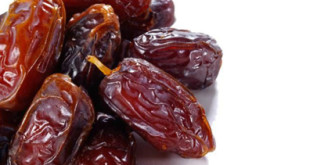And a tree (Olive) that springs forth from
Mount Sinai,
that grows (produces) oil,
and (it is)
relish for the eaters.
'QURAN' 23:20
.jpg) The greatest exponent of monounsaturated fat is olive oil, and it is a prime component of the Mediterranean Diet. Olive oil is a natural juice which preserves the taste, aroma, vitamins and properties of the olive fruit. Olive oil is the only vegetable oil that can be consumed as it is – freshly pressed from the fruit.
The greatest exponent of monounsaturated fat is olive oil, and it is a prime component of the Mediterranean Diet. Olive oil is a natural juice which preserves the taste, aroma, vitamins and properties of the olive fruit. Olive oil is the only vegetable oil that can be consumed as it is – freshly pressed from the fruit.
The beneficial health effects of olive oil are due to both its high content of monounsaturated fatty acids and its high content of antioxidative substances. Studies have shown that olive oil offers protection against heart disease by controlling LDL ("bad") cholesterol levels while raising HDL (the "good" cholesterol) levels. (1-3) No other naturally produced oil has as large an amount of monounsaturated as olive oil -mainly oleic acid.
Studies have shown that people who consumed 25 milliliters (mL) – about 2 tablespoons – of virgin olive oil daily for 1 week showed less oxidation of LDL cholesterol and higher levels of antioxidant compounds, particularly phenols, in the blood.(4)
 Spanish researchers suggest that including olive oil in your diet may also offer benefits in terms of colon cancer prevention (5).
Spanish researchers suggest that including olive oil in your diet may also offer benefits in terms of colon cancer prevention (5).
Types of olive oil…
Generally, olive oil is extracted by pressing or crushing olives. Olive oil comes in different varieties, depending on the amount of processing involved. Varieties include:
Extra virgin – considered the best, least processed, comprising the oil from the first pressing of the olives.
Virgin – from the second pressing.
Extra light – undergoes considerable processing and only retains a very mild olive flavour.
When buying olive oil you will want to obtain a high quality EXTRA VIRGIN oil. The oil that comes from the first "pressing" of the olive, is extracted without using heat (a cold press) or chemicals, and has no "off" flavors is awarded "extra virgin" status. The less the olive oil is handled, the closer to its natural state, the better the oil. If the olive oil meets all the criteria, it can be designated as "extra virgin".
"Light" olive oil is a marketing concept and not a classification of olive oil grades. It is completely unregulated by any certification organizations and therefore has no real precedent to what its content should be. Sometimes, the olive oil is cut with other vegetable oils.
How to care for your olive oil
Resist the temptation to place your beautiful bottle of olive oil on the windowsill. Light and heat are the #1 enemy of oil. Keep olive oil in a cool and dark place, tightly sealed. Oxygen promotes rancidity. Olive oil is like other oils and can easily go rancid when exposed to air, light or high temperatures.
References
1.Keys A, Menotti A, Karvonen MJ, et al.: The diet and 15-year death rate in the Seven Countries Study. Am J Epidemiol 124: 903-915 (1986)
2.Willett WC: Diet and coronary heart disease. Monographs in Epidemiology and Biostatistics 15: 341-379 (1990)
3.World Health Organization: Diet, nutrition, and the prevention of chronic diseases. Report of a WHO Study Group. WHO Technical Report Series 797, Geneva 1990
(4) European Journal of Clinical Nutrition April 2002;56:114-120
(5) Gut 2000;46:191-199.
 Sri lanka Muslims Web Portal Diversity and Inclusiveness
Sri lanka Muslims Web Portal Diversity and Inclusiveness




many many thanks for this valuable information